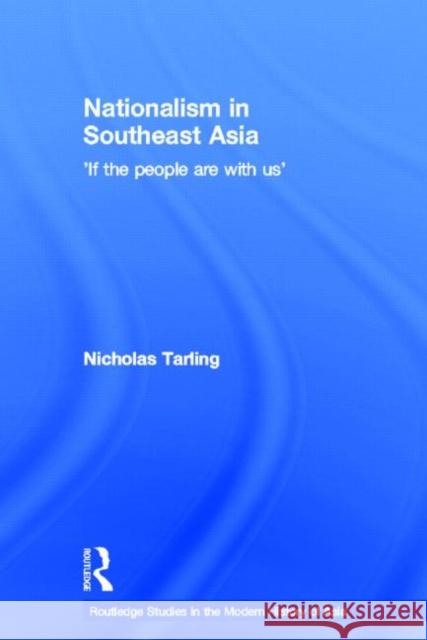Nationalism in Southeast Asia: If the People Are with Us » książka
Nationalism in Southeast Asia: If the People Are with Us
ISBN-13: 9780415334761 / Angielski / Twarda / 2004 / 288 str.
Nationalism in Southeast Asia seeks a definition of nationalism through examining its role in the history of Southeast Asia, a region rarely included in general books on the topic. By developing such a definition and testing it out, Nicholas Tarling hopes at the same time to make a contribution to Southeast Asian historiography and to limit its 'ghettoization'. The state building of the colonial phase 1949-1975 is seen as a directed process with unexpected outcomes: it helped to create and to provoke opposition that took the form of 'nationalist' movements. Tarling goes onto consider the role of nationalism in the 'nation-building' of the post-colonial phase, and its relationship both with the democratic aspirations associated with the winning of independence and with the authoritarianism of the closing decades of the twentieth century. Finally, Tarling offers comment on the 'new nationalisms' that authoritarianism has helped to provoke, and their prospects, as well as those of the nation states, in the current phase of globalization.











